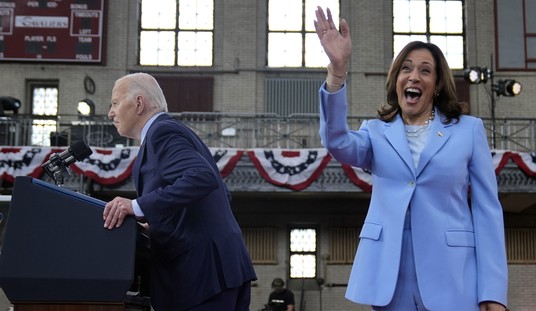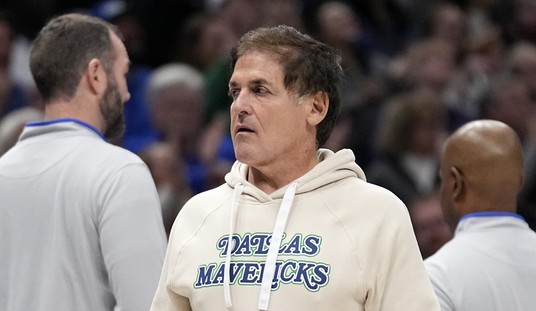In April, 2015 Matthew Yglesias argued that president Obama was right to compare ISIS to bees. “Obama trying to reassure children about bees is a perfect metaphor for his foreign policy,” he said. Obama was doing what smart people do, which is put everything in perspective, instead of panicking like conservatives do. The children in Yglesias’s example, were the president’s panicked critics.:
To understand it, you could do worse than to watch the president attempt to calm a lawn full of screaming children who are terrified of a bee.
“It’s okay, guys,” he says. “Bees are good. They won’t land on you.”
“They sting, and they’re scary!” a child yelled in response.
Like the child frightened of the bee, Obama’s critics have spent most of his time in office slamming him as naive about the nature of foreign threats. Like the kid, they are concerned that Obama is blind to the bee’s menace — or perhaps even in league with the bee and its nefarious agenda. But if you look on the scene with the slightest bit of maturity and generosity, it’s conceivable that the president is actually aware that people sometimes get stung by bees. His point is less that the bee threat doesn’t exist than that ruining a nice event by obsessing over the bee would be counterproductive.
Don’t get it? Let’s try again. In late 2014 Allen Clifton argued in Forward Progressive that the “simple truth” was that “President Obama is Too Intelligent for Republicans to Understand”. Obama could see the big picture, whereas conservatives could not, and in consequence lived in a state of continuous paranoia.
A few years back I worked with a guy who was probably a genius. In fact, he often struggled in life interacting with people because his brain simply performed at a higher level than the average person. I remember asking him what his biggest belief was in making life decisions and he always, without fail, told me “think of the bigger picture.” And while I’ve always tried to be a big picture thinker, knowing him when I did helped me understand it a little better. …
He always told me the biggest issue he faced when dealing with people was that he’d see things in a bigger scope that most people simply couldn’t follow. While many people tend to not see beyond a particular moment, day, week or even month, he operated with a sense of “is what I’m doing now the best course of action to set me up for success not just now, but later on.” …
Which brings me to President Obama. While I’m not calling him a genius, I do think he’s extremely intelligent. I also believe that his tendency to use “big picture” thinking while drafting policy is something most Republican voters simply can’t understand.
A person who can grasp the big picture can think outside of the box and shed the shackles of convention. Valerie Strauss, writing in the Washington Post argued that academia should be confident enough to condemn Shakespeare as passe and expunge his works entirely from the English curriculum. “A new report on the teaching of Shakespeare in higher education found that English majors at the vast majority of the country’s most prestigious colleges and universities are not now required to take an in-depth Shakespeare course.” So why not go all the way and expunge the Bard from high school and anywhere else his baleful influence may be found?
I am a high school English teacher. I am not supposed to dislike Shakespeare. But I do. And not only do I dislike Shakespeare because of my own personal disinterest in reading stories written in an early form of the English language that I cannot always easily navigate, but also because there is a WORLD of really exciting literature out there that better speaks to the needs of my very ethnically-diverse and wonderfully curious modern-day students. …
I am sad that so many of my colleagues teach a canon that some white people decided upon so long ago and do it without question. I am sad that we don’t believe enough in ourselves as professionals to challenge the way that it has “always been done.” I am sad that we don’t reach beyond our own often narrow beliefs about how young people become literate to incorporate new research on how teenagers learn, and a belief that our students should be excited about what they read — and that may often mean that we need to find the time to let them choose their own literature.
In fairness, Strauss’ argument is valid within the context of her own big picture; that is to say her culture. If any reader finds the bee story and the abolition of Shakespeare objectionable is only because their frame of reference is different from that of Strauss, Yglesias or Obama.
You may for example be under the delusion that Nobel Prize winning biochemist Tim Hunt should continue at his job instead of being drummed out of public life over a single sentence he uttered at a conference. “Let me tell you about my trouble with girls … three things happen when they are in the lab … You fall in love with them, they fall in love with you and when you criticise them, they cry.”
You might think that Brendan Eich, creator of Javascript and formerly the chief executive officer of Mozilla should not have been blacklisted simply because he had made a $1,000 political donation in 2008 to the successful campaign for California Proposition 8. But that is because you think that scientists should be judged on science and programmers on programming.
You might think it would be possible to determine whether someone was male or female, black or white. But in the culture of bees and trendy authors, both Hunt and Eich deserve to be consigned to the Ninth Circle of Hell while gender and race are merely matters of whatever the narrative requires.
It is simply a fact that in a multicultural society, the standards of one group will be different from the other. Yet each will meet their needs from the common inflow, which are premiums in an insurance system and taxes in the case of a government. And the problem of course is not that the bee, “big picture” and trendy author group are going to pay out to their members. The problem is that the self described brilliant elite are going to pay for their interests out of a fund which is disproportionately based on contributions of the Tim Hunts, Brendan Eichs, the workers and the breeders.
This will eventually reflect itself in a reluctance of one pool to “go along” with the spending decisions of the other pool. Recently Greg Jaffe and Missy Ryan of the Washington Post expressed some surprise at the reluctance of the US military brass to do anything but the bare minimum in the Middle East.
Top military officials, who have typically argued for more combat power to overcome battlefield setbacks over the past decade, emerged in recent White House debates as consistent voices of caution in Iraq. Their shift reflects the paucity of good options and a reluctance to suffer more combat deaths in a war in which America’s political leaders are far from committed and Iraqis have shown limited will to fight.
After the past 12 years in the Middle East, there is a real focus by senior military leaders on understanding what the endgame is,” said a military official, “and asking the question, ‘To what end are we doing this?’ ”
Why so non gung-ho all of a sudden? There’s no mystery to this divergence of enthusiasm. Maybe one pool believes in the old white people’s canon of victory while the other pool believes in bees. Eventually the one pool gets tired of paying for the other, or at least they are not so forthcoming as before. In the insurance world, this divergence leads to what is called a “death spiral”.
the claims costs for the entire group increase, and therefore, so does the average health cost for the individuals in the group. The insurer then raises the rates to cover the higher costs. Subscribers with better health realize that they can re-apply for and obtain other very similar health insurance at low, new-subscriber rates similar to the original rates of the current policy. …
Since they can purchase the same or better coverage for less, the healthy people flee the group. As the remaining less-healthy people who cannot flee (because they cannot qualify for new health insurance) acquire more health conditions over time, and since the group is closed to new healthy subscribers, the total health costs for the group accelerates out of proportion to the number of subscribers in the group, and the average cost for the individual group member increases. Premiums are increased to reflect higher average costs of the group.
This is exactly what happened to Detroit during the term of the Honorable Coleman Young. Taxpayers who could, fled to the Detroit suburbs and Motown entered a death spiral. This naturally led to the multiculturals chasing after the fleeing taxpayers in a process called adverse selection. “Adverse selection, anti-selection, or negative selection is a term used in economics, insurance, risk management, and statistics. It refers to a market process in which undesired results occur when buyers and sellers have asymmetric information (access to different information); the “bad” customers are more likely to apply for the service.”
This can be illustrated by the link between smoking status and mortality. Non-smokers, on average, live longer than smokers. If a life insurance company does not vary prices according to smoking status, its life insurance will be a better buy for smokers than for non-smokers. So smokers may be more likely to buy insurance from that company, or may tend to buy larger amounts than non-smokers, thereby raising the average mortality of the combined policyholder group above that of the insured population in general, and leading to losses for the company and/or higher prices for all that company’s customers.
Furthermore, these higher prices may lead the “good risks” (healthy, non-smoking customers) to cancel or not renew their insurance. This promotes a further increase in price: a vicious circle, which might, in theory, lead to the collapse of the insurance market.
Create any attractive institution and unless you can restrict membership based on particular characteristics then the freeloaders will try to get in because of the risk/premium arbitrage. That’s adverse selection.
Ideally, people who want to live in Obama’s world of bees would pay their freight and be welcome to it. But they won’t restrict expenses to their pool. In reality the bee crowd wants to subsidize their universe with other people’s effort (OPE). This always happens in insurance and probably happens in government.
One way to delay a “death spiral” is to make membership mandatory. This is exactly why the Individual Mandate is so important to Obamacare. It requires people to buy insurance and force them to participate in the system. This would be like forcing all residents of Detroit to stay where they were. It’s crude but effective.
Because the law forces health insurers to accept any applicants without taking pre-existing conditions into consideration and charge everyone (except tobacco users) the same age the same premium, it must be coupled with an individual mandate.
If not coupled with a penalty (or fine or tax) for not having health insurance, people would simply wait until they get sick or injured and then buy health insurance. This leads to a so-called death spiral as health insurers increase their premiums in response to individuals’ behavior.
This of course, does not prevent a death spiral from happening in the end. It only delays it. People who are interested in Shakespeare, biochemistry and hard-core Javascript will always try to go somewhere else. And really, whatever Strauss says, she wants the Shakespeareans to stay in, because they probably provide most of the lasting literary value in her field. Like the Bard said: “to bee or not to bee”. It will be interesting to see which trend wins: the rise of affinity groups or the idea that government is “things we choose to do together”, preferably with the assistance of manacles.
Recently purchased by readers:
Cassandra Data Modeling and Analysis Paperback, December 23, 2014 by C.Y. Kan
Conversations with a Rattlesnake, Raw and honest reflections on healing and trauma Hardcover – November 28, 2014 by Theo Fleury (Author), Kim Barthel
Downfall, The End of the Imperial Japanese Empire Hardcover – September 28, 1999 by Richard Frank
Early Cold War Spies, The Espionage Trials that Shaped American Politics (Cambridge Essential Histories) Paperback – August 28, 2006 by John Earl Haynes, Harvey Klehr
Making Mavericks The Memoir of a Surfing Legend Paperback – October 26, 2012 by Frosty Hesson
Chemex 3-Cup Coffeemaker with Glass Handle
Possibly worth buying:
Retribution, The Battle for Japan, 1944-45 Paperback – March 10, 2009 by Max Hastings
Building Cloud Apps with Microsoft Azure, Best Practices for DevOps, Data Storage, High Availability, and More (Developer Reference) [Kindle Edition] Free
War Plan Orange, The U.S. Strategy to Defeat Japan, 1897-1945 Paperback – March 1, 2007 by Edward S. Miller
Bankrupting the Enemy, The U.S. Financial Siege of Japan Before Pearl Harbor Hardcover – September 10, 2007 by Edward S. Miller
Did you know that you can purchase some of these books and pamphlets by Richard Fernandez and share them with you friends? They will receive a link in their email and it will automatically give them access to a Kindle reader on their smartphone, computer or even as a web-readable document.
The War of the Words for $3.99, Understanding the crisis of the early 21st century in terms of information corruption in the financial, security and political spheres
Rebranding Christianity for $3.99, or why the truth shall make you free
The Three Conjectures at Amazon Kindle for $1.99, reflections on terrorism and the nuclear age
Storming the Castle at Amazon Kindle for $3.99, why government should get small
No Way In at Amazon Kindle $8.95, print $9.99. Fiction. A flight into peril, flashbacks to underground action.
Storm Over the South China Sea $0.99, how China is restarting history in the Pacific
Tip Jar or Subscribe or Unsubscribe to the Belmont Club









Join the conversation as a VIP Member